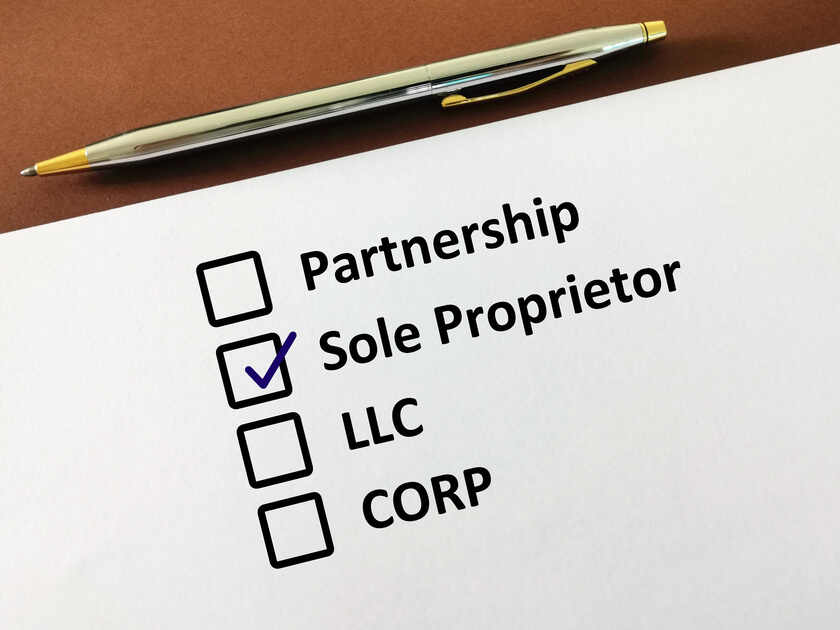Zero-Rated GST in Singapore: Everything Businesses Must Know
Discover what Zero-Rated GST is, how 0% GST can help your Singapore business save on taxes, how to qualify for it and more.

Setting up as a Sole Proprietor is a popular option as it’s pretty straight forward, and allows for flexibility to work as you choose to. But what about when your business expands? Can a sole proprietor hire employees in Singapore - and if not, can a sole proprietor have independent contractors?
This guide gives you a great starting point to learn from - plus we’ll also touch on the card and account services from Wise Business, which can be a simple way to manage your money across currencies as a Singapore sole proprietor, with low fees and the midmarket rate.
| Table of contents |
|---|
A Sole Proprietorship is a business owned by one person.
Legally, your personal and business finances are not separate, so you take responsibility for the debts or liabilities of your business personally. You’ll also pay taxes to IRAS at personal income tax levels.
As a Sole Proprietor you still need to register with ACRA and comply with certain rules and requirements - but this is a fairly simple, cheap, and easy business entity type in Singapore.
| 🔍Once registered, you will need to open a business account to keep your sole proprietorship finances clean and separate from your personal bank account. If you’re comparing your options, check out your handy guide to The Best Bank Account For A Singapore-based Sole Proprietorship. |
|---|
The good news is that a sole proprietor in Singapore can have employees. However, it’s important to note that there are many rules and legal steps in place to protect employees in Singapore, and to ensure that any hiring company complies with the law and taxation requirements.
That means that you’ll need to get up to speed with employment law and hiring practices before you start to hire for your team.
It’s also worth noting that the requirements on you if you’re hiring independent contractors rather than employees under contract may be different. Before you get started, consider whether hiring employees or contractors is better for your needs - this guide focuses on hiring employees, so you’ll know what steps you need to take for expanding your team.
Hiring staff is bound by many legal requirements, and also means you’ll need to learn more about the taxation policies and processes for employers. It’s crucial that you get individual guidance on the steps you’ll need to take, as these can depend on factors including how many employees you intend to hire, the types of jobs, the salary levels, and where the employees will come from and reside.
Some common steps that most Sole Proprietors hiring in Singapore are likely to need to take include:
It’s useful to familiarise yourself with the Employment Act before you start the hiring process as this contains the key employment legislation for Singapore. This legislation includes things like the employment rights of employees, and your obligations as an employer. The act also includes information about the Key Employment Terms which must be included in the contract between you and your employees, and other important information you’ll need to learn about early on in your journey to hire a team in Singapore.
If you start to employ people as a sole proprietor, you’ll need to carefully review the expenses involved with employment which are allowable deductions from your profits when you calculate your own taxable income. This may include things like the salary you pay your employees, their CPF contributions, any medical expenses, insurance policies or bonus paid⁶.
You’ll need to be clear on which employment expenses can be set off against your taxable income, as some things are not allowable business expenses - such as CPF payments above the mandatory requirement, or some Medisave contributions. You may also find some medical expenses exceed the limits for allowable amounts. Bear in mind also that you cannot count your own salary or expenses here to offset against the tax you need to pay.
| 💰 Check out our handy business tax resources |
|---|
| ➡️ Understanding Sole Proprietor Tax in Singapore |
| ➡️ Guide to Singapore corporate tax rebates |
Taking professional advice here can make the process a lot smoother, and can also help you manage your taxes in the most efficient and streamlined way possible.
This guide is for information only, and can not be taken as advice. If you’re unsure about how to best manage your company legal or tax matters, seek professional support from a tax accountant or lawyer.
If you’re planning on doing business across countries - now or in the future - check out the account and card services from Wise Business. Wise Business lets you hold and exchange 40+ currencies, and send money to over 140+ countries. That can make paying your employees, contractors, suppliers and vendors a breeze. Plus, if you’re looking for simple ways to connect with overseas customers you can also receive payments from others in 8+ currencies with local and SWIFT account information.
➡️Learn more about Wise Business
As a sole proprietor is by nature a small business to start out, owned by only one person, the easiest way to expand for many people is to employ a family member. This can help you be more flexible in your business dealings by giving you an extra pair of hands when you need it, but it is important to remember that you still need to comply with all applicable laws.
This includes the rules about employing children if you intend to have younger family members involved in your business, and requirements to make CPF payments.
Again, to avoid the risk of accidentally breaking the law, you may want to get professional advice from an employment lawyer or specialist service before you hire.
If your company is growing, the obvious option may be to convert your sole proprietorship to a Pte Ltd structure - similar to an LLC in the US, or a PLC in the UK. This will mean closing your sole proprietorship and then registering your new business with ACRA as a Pte Ltd entity type. This process can be completed entirely online through ACRA and Bizfile, or there are formation agents which can walk you through the process step by step for a fee.
Growing your sole proprietor business by bringing on staff can make it easier to manage a larger and more complex entity, and accelerate your company profits. Before you hire anyone, you’ll need to get familiar with the ins and outs of hiring anyone in Singapore - and take legal and tax advice as necessary based on the specific situation you’re in.
While you’re thinking about the next steps to growing your business, why not also consider Wise Business to expand internationally with a smart account to hold and exchange 40+ currencies, with simple, low cost ways to send money to over 140+ countries.


| 💡If you're growing a global business, you'll quickly face a daunting wall of costs, complexity, and hidden fees when receiving international payments. Wise Business helps you bypass this wall, making it easy to receive money from around the world and start getting paid like a local today. |
|---|
➡️Get started with Wise Business today
Sources:
Sources checked on: 29th April 2025
*Please see terms of use and product availability for your region or visit Wise fees and pricing for the most up to date pricing and fee information.
This publication is provided for general information purposes and does not constitute legal, tax or other professional advice from Wise Payments Limited or its subsidiaries and its affiliates, and it is not intended as a substitute for obtaining advice from a financial advisor or any other professional.
We make no representations, warranties or guarantees, whether expressed or implied, that the content in the publication is accurate, complete or up to date.

Discover what Zero-Rated GST is, how 0% GST can help your Singapore business save on taxes, how to qualify for it and more.

New to bank reconciliation? Here’s why it is important for your business and a step-by-step guide to ensure accuracy of your financial records.

Compare the top accounting software for small businesses in Singapore. See features, pricing, and how to simplify finances with Wise Business.

Discover how to calculate your gross and net burn rates, what makes a good burn rate and how to use it to improve your business.

Learn how sole proprietorship tax works in Singapore, from rates to deductions — plus tips to avoid penalties and stay compliant with IRAS.

Compare top expense management software for Singapore businesses. Learn how they work and what to look out for when choosing one for your company.